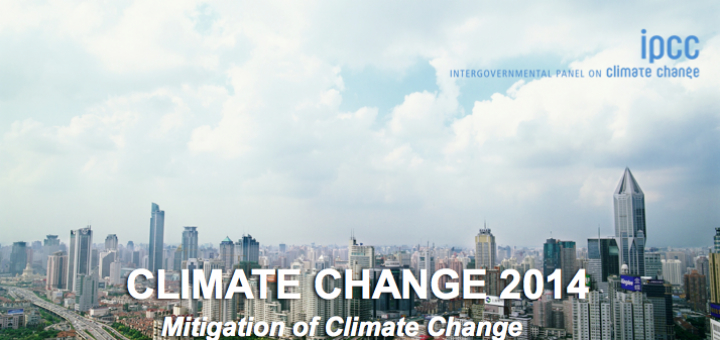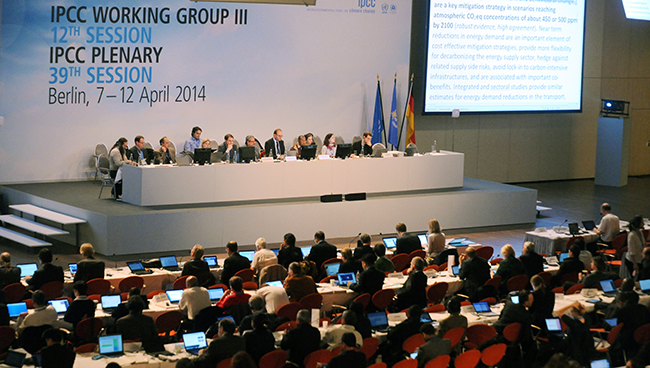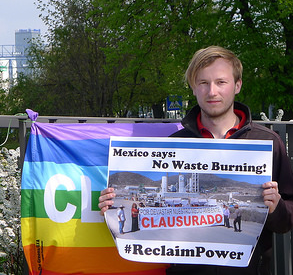Waste – the controversial side of climate change mitigation in the latest IPCC report

Waste is contributing to climate change but it can also be part of the solution if true Zero Waste principles are implemented. Last week the Intergovernmental Panel on Climate Change (IPCC) released its latest report on mitigation of climate change, an attempt to provide a state-of-the-art on strategies and technologies available to reduce the emissions that contribute to climate change. What did the IPCC say about waste?
As the Zero Waste Europe team has been able to confirm, the report has turned up with shocking controversies.
On the one hand, the report does confirm once more the 101 bases on waste and climate change – basically, that waste reduction, reuse and recycling are the most effective options for emission reduction in the waste sector.
It also acknowledges that zero waste strategies do exist and offer visionary development for waste reduction strategies. But apart from these, the report devotes little attention to elaborate on the current state of the best practices on upstream solutions and focuses mostly on downstream industrial options.

Following this narrow-focused vision, the report includes the misleading consideration of burning waste as replacement of fossil fuels in combustion plants, i.e. cement plants, as a climate mitigation strategy for the waste sector –considering that burning waste is better than disposing it in landfills and that this is the best option we can aspire to. This perspective is out of touch with reality. Zero Waste towns prove on an everyday basis that prevention, reuse and recycling are better options and can be implemented rather quickly.
In the Summary for Policy Makers, the specific text argues that replacing fossil fuels with waste may be a significant mitigation option since ‘reuse and recycling levels are still very low’ at the global level. Again, this appreciation ignores the daily experience of Zero Waste municipalities and regions that are achieving recycling targets above 80% and that have substantially reduced their waste generation. Moreover, since waste management is a dimension of public policy generally dealt with at the local level, why should a global rate be taken as the key reference? This seems to be just inappropriate reasoning. The point is further referenced in the full report (Ch. 10.14, Ch. 10.4).
Interestingly enough, some of the claims are quoted to authors such as Holcim or CEMBUREAU (Ch.10, p. 26), which, as cement producing companies, should be considered very invested parties and thus biased. Other authors that have contributed directly to the report are publicly known for promoting waste as fuel and incineration technologies in general, which also raises questions about whether the IPCC has or should have a conflict of interest policy to its own authorship.
GAIA– Global Alliance for Incinerator Alternatives has responded with this letter to such misleading claims and it has urged the IPCC to correct and amend this language.
“We feel compelled to urge the WGIII to amend its support for using waste as a fuel to reduce the demand for fossil fuels. This is not a sustainable climate mitigation strategy, but a highly controversial and ultimately misleading suggestion. If we are to change our energy system and decarbonise our electricity supply, waste cannot be taken as the new coal“, said Mariel Vilella, Climate Policy Campaigner with GAIA.

Precisely, the IPCC fails to report on the most innovative approaches to waste reduction, reuse, recycling and energy recovery through composting and anaerobic digestion within zero waste strategies that are taking place all over the world, which do not necessarily or exclusively come from the industrial sector but from the redesign of our resource management systems.
Furthermore, it is important to realise that in the US, for example, 42% of emissions come from resource management – that is, considering all the life-cycle of products in their extraction – production – distribution – consumption – and disposal stages of stuff. This reality requires social innovation to stop waste reaching the landfills and incinerators in the first place. Limiting our vision to industrial options on how to deal with landfill emissions it is not a useful approach; even worse, it will only accentuate the tendency to allocate the least resources and effort to waste prevention, which is found at the top of the Waste Hierarchy.
It is not too late for the IPCC to amend the report before the final publication in October 2014. If the IPCC is committed to fight climate change it is vital that it looks into solutions that really reduce emissions and starts working with unbiased experts.
At the end of the day, the relevance of the IPPC depends on its usefulness to fight climate change and currently, in the waste sector, it seems to be more a part of the problem than a part of the solution.The report includes the misleading consideration of burning waste as replacement of fossil fuels in combustion plants.